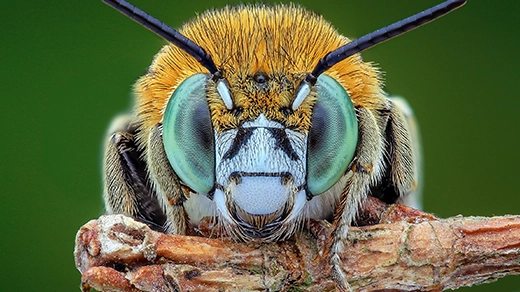What's up in
Biology
Latest Articles
The Mystery of the Missing Multicellular Prokaryotes
Why have bacteria never evolved complex multicellularity? A new hypothesis suggests that it could come down to how prokaryotic genomes respond to a small population size.
What Does Milk Do for Babies?
Human nutrition begins with milk, but the wondrous biofluid does much more than feed babies. In this episode, co-host Steven Strogatz speaks with molecular nutritionist Elizabeth Johnson about her research into the impact of human milk on a healthy microbiome.
Ecologists Struggle to Get a Grip on ‘Keystone Species’
More than 50 years after Bob Paine’s experiment with starfish, hundreds of species have been pronounced “keystones” in their ecosystems. Has the powerful metaphor lost its mathematical meaning?
Insects and Other Animals Have Consciousness, Experts Declare
A group of prominent biologists and philosophers announced a new consensus: There’s “a realistic possibility” that insects, octopuses, crustaceans, fish and other overlooked animals experience consciousness.
Pleasure or Pain? He Maps the Neural Circuits That Decide.
The work of the neuroscientist Ishmail Abdus-Saboor has opened up a world of insights into precisely how much pleasure and pain animals experience during different forms of touch.
Viruses Finally Reveal Their Complex Social Life
New research has uncovered a social world of viruses full of cheating, cooperation and other intrigues, suggesting that viruses make sense only as members of a community.
Overexposure Distorted the Science of Mirror Neurons
After a decade out of the spotlight, the brain cells once alleged to explain empathy, autism and theory of mind are being refined and redefined.
The Social Benefits of Getting Our Brains in Sync
Our brain waves can align when we work and play closely together. The phenomenon, known as interbrain synchrony, suggests that collaboration is biological.
How Is Flocking Like Computing?
Birds flock. Locusts swarm. Fish school. From chaotic assemblies of life, order somehow emerges. In this episode, co-host Steven Strogatz interviews the evolutionary ecologist Iain Couzin about how and why collective behaviors arise.








